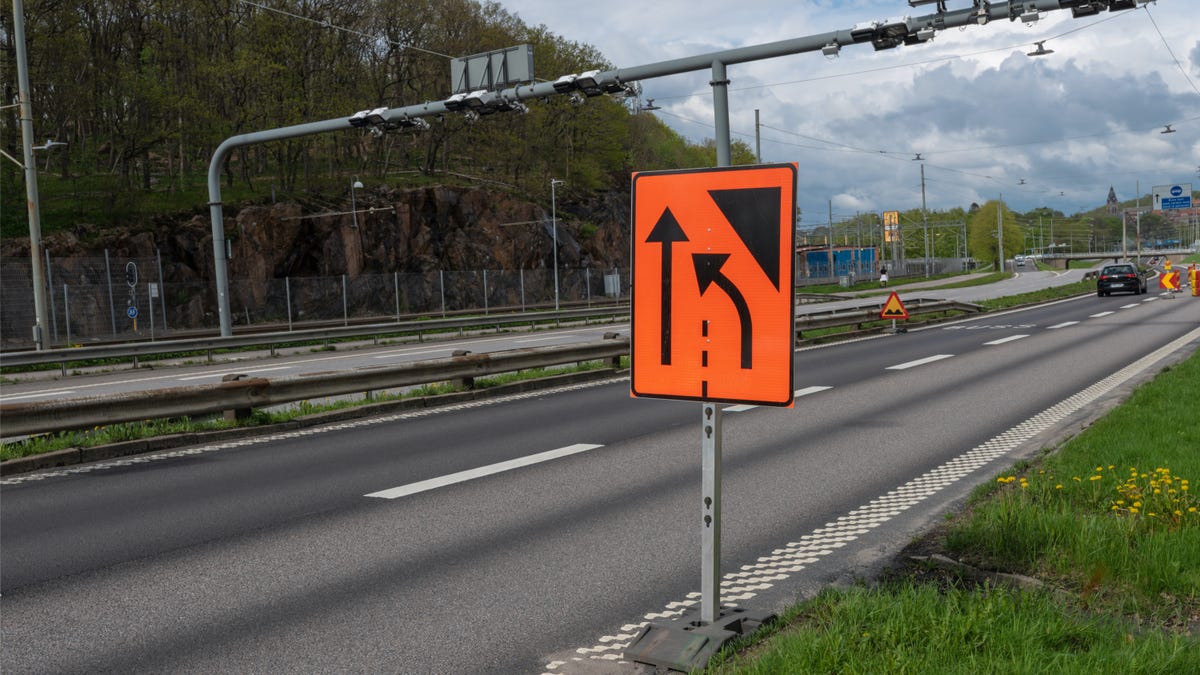Storm Isha leaves passengers stranded after diverting flights hundreds of miles from destinations
Planeload of easyJet passengers from Edinburgh to Bristol diverted to Paris – where many of them had to sleep in the terminal


Sign up to Simon Calder’s free travel email for expert advice and money-saving discounts
Get Simon Calder’s Travel email
Tens of thousands of travellers have woken up where they did not expect to be after hundreds of cancellations of planes, trains and ferries.
They include a planeload of passengers from Edinburgh to Bristol who are currently in Paris – some of them sleeping in the airport terminal because French immigration officials would not let them access hotels without passports.
On Tuesday, millions of commuters across the UK faced rush-hour chaos on the railways, high seas and in the air as the disruption caused by Storm Isha continued.
These are the main issues in the latest bout of travel chaos.
What were the key problems on Sunday?
Flights were spectacularly disrupted, causing stress and upset for thousands of passengers. There were hundreds of cancellations at UK airports, and dozens of diversions of incoming planes – with Ryanair passengers on what is normally a half-hour hop from Manchester to Dublin ending up in Beauvais in northern France.
An easyJet domestic flight from Edinburgh to Bristol diverting to Paris. That was a big problem for the passengers who were not carrying passports – or national ID cards – because they couldn’t leave the terminal and be placed in a hotel. An easyJet spokesperson said: “Some customers not carrying a passport have been required by the French authorities to remain in the airport and so we are working with the airport to make them as comfortable as possible.
“While the circumstances are outside of our control, we are very sorry for the inconvenience caused as a result of the weather.”
David Gibbs, an easyJet passenger on a Zurich-London Gatwick flight that diverted to Paris CDG, said: “We tried to land at Gatwick itwice. We ended up in Paris CDG at 1am, and we promised hotels and food vouchers by easyJet.
“I can safely say along with many others we have not been given anything. As we disembarked and ended up at the check in desks we found ground crew with no leadership or communication to hundreds of diverted passengers.
“We were giving new boarding passes on the app but these would not work and allow us to reach after airside security and we had to force our way back to the check in desks to get new printed passes.”
The Independent has asked easyJet for a response to Mr Gibbs’ claims.
What about the railways?
In terms of the sheer number of travellers affected, rail passengers were worst hit on Sunday. What began mainly with warnings about speed restrictions quickly unravelled into mass cancellations – notably in Scotland, where no trains departed after 7pm. Speed restrictions extended journey times in most of the rest of the UK, with most rail firms ending up urging passengers not to attempt to travel.
On Monday, Scotland is the area of most concern. All rush-hour trains were cancelled for track inspections – with Network Rail staff looking for debris that has been blown onto tracks.
ScotRail is telling passengers: “Following severe weather, ScotRail remain suspended across most of their network while engineers inspect the lines for any damage. Disruption is expected until the end of the day. Checks have been made on the following routes, allowing trains to run:
“No rail replacement transport is in place for the cancelled services across the rest of the ScotRail network.”
Some cross-border trains are now running after damage to overhead electric wires between Dunbar and Edinburgh.
Across England and Wales there are dozens of problems, with commuters and some airline passengers to and from Gatwick stranded earlier due to overrunning engineering work.
The UK’s biggest rail franchise in passenger numbers, GTR, covers Southern, Gatwick Express, Thameslink and Great Northern. The firm is telling passengers: “We recommend you leave at least 30 minutes of extra time for your journey, and only travel if essential.
“If any lines need to close at short notice due to the effects of the weather, services may be cancelled or changed at short notice.”
The main line through East Anglia, from London via Colchester to Norwich, is closed in Norfolk “due to plastic sheeting caught on the overhead electric wires”.
Northern Trains has warned that lines from Carlisle to both Skipton and Barrow-in-Furness are blocked “due to heavy rain flooding the railway”. No trains will run before 3pm and the message from Northern is: “Do not travel. Road transport will not be provided.”
South Western Railway, which links London Waterloo with Surrey, Hampshire, Wiltshire and Dorset, has experienced severe problems caused by fallen trees between Woking and Basingstoke and between Basingstoke and Salisbury – as well as a landslip between Salisbury and Grateley. Disruption is expected until at least 1.30pm.
What’s happening in the skies?
Planes, pilots and passengers in lots of unexpected places spells a tricky start to the working week. There are dozens of cancellations, for example at Heathrow where early flights to Halifax in Canada, Frankfurt, Istanbul, Brussels and Amsterdam are grounded because the planes couldn’t get in last night.
British Airways has so far grounded 22 short-haul flights to and from Heathrow: 14 arrivals and eight departures. To and from London City airport, 22 flights in total are grounded.
A spokesperson for BA said: “Like other airlines, we have had to make schedule adjustments due to the adverse weather conditions across the UK and Europe caused by Storm Isha. We’ve apologised to our customers for the disruption to their travel plans and our teams are working hard to get them on their way as quickly as possible.”
The airline is deploying bigger planes on some routes to allow disrupted passengers to travel.
Other badly hit airports include Edinburgh, where the early flights to Amsterdam, Frankfurt and no fewer than four British Airways departures to London were grounded.
It was similar picture at Glasgow. A couple of Loganair flights from Orkney to Aberdeen and to Edinburgh were cancelled. But other key airports that were badly affected on Sunday, including Belfast International and Gatwick, are looking much better this morning. Dublin airport stands out for having the highest number of cancellations.
What are passengers’ rights?
Airlines must provide onward transport as soon as possible, and hotels and meals while you are waiting. No cash compensation is payable, though, as the extreme weather counts as “extraordinary circumstances.
Even if the carrier is not to blame for the cancellation, it has a strict and unlimited obligation to get the passenger to their destination as soon as possible, even if it costs hundreds of pounds. While the traveller is waiting, all meals must be provided – along with hotel accommodation as necessary, with no cap on the cost of a room.
Unfortunately if no hotel is available – or, as in the case of easyJet passengers in Paris without passports, you cannot access it – there is no further obligation on the airline.
Have the ferries resuming normal service?
Far from it. There were widespread cancellations on ferries from the Western Isles to the English Channel from Sunday lunchtime onwards.
These have continued, with no Caledonian MacBrayne sailings on many routes including from Arran to Ardrossan; Oban to Barra, Coll and Tiree; Wemyss Bay to Bute; Largs to Cumbrae; Kennacraig to Islay; and all services from Mallaig.
Northlink cancelled some Orkney-mainland Scotland services in the morning; this afternoon’s and evening’s sailinge between Scrabster and Stromness are “under review”.
On the Irish Sea, the early Irish Ferries sailing on Monday morning from Holyhead to Dublin was cancelled.
Between Dover and northern France, the port authorities say a gale is blowing and seas are very rough – but after many cancellations and long delays overnight ferries are running more or less normally.

 JaneWalter
JaneWalter 






























